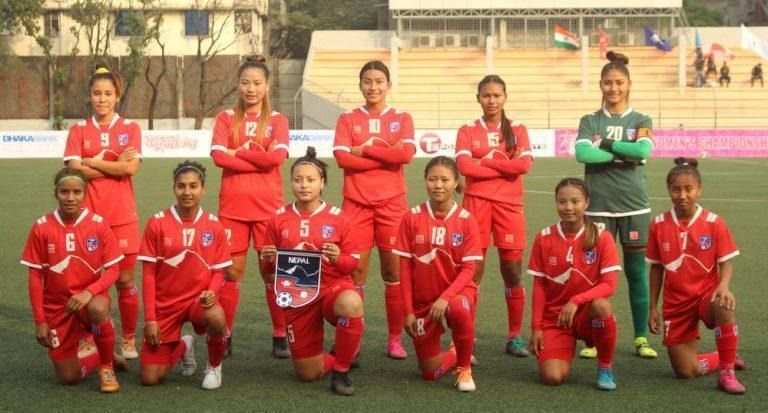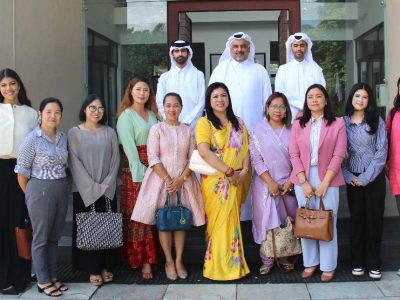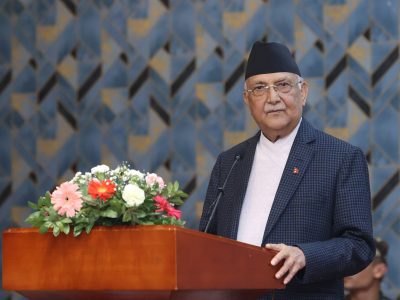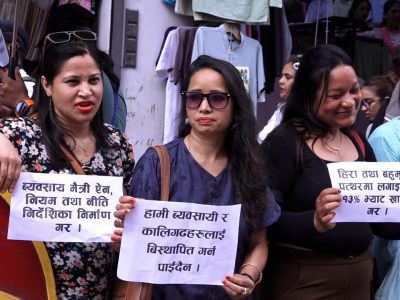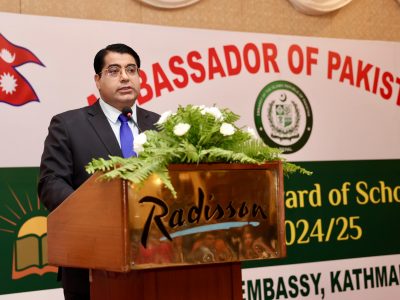Transformation of Nepal’s library; From clay pot to digital
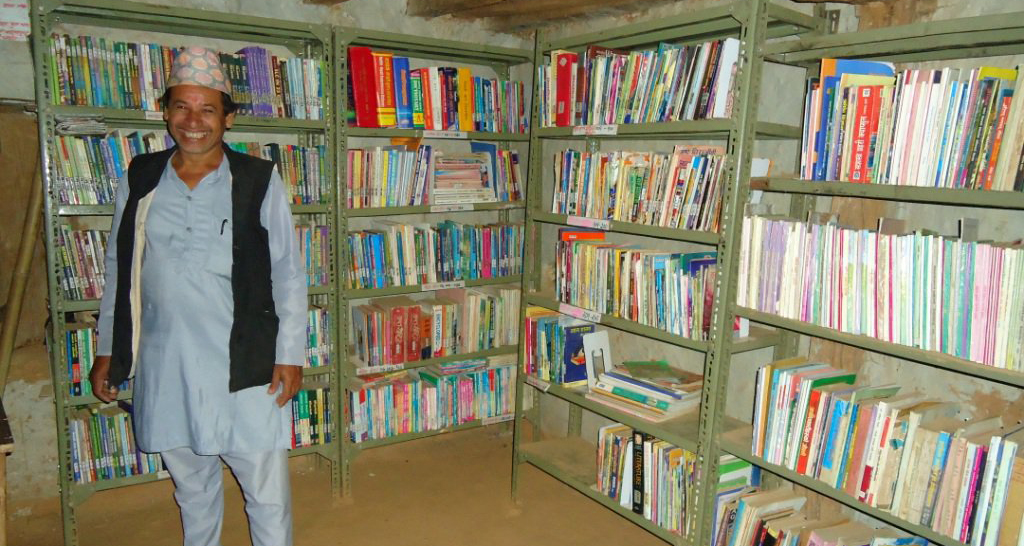
Kathmandu, Sept 2: ‘Nothing is pleasanter than exploring a library.’ British poet Walter Savage Landor made this observation, and many people have agreed since then. For many people, the general perception is that it feels joy visiting a library which is considered a shared house to acquire knowledge where all readers are treated equally.
Library is also considered a central point to preserve and protect history, and a university of citizens. With the advent of information technology, library has now witnessed a shift from traditional one to digital.
From clay pot to library
According to the World Book of Encyclopedia, Sumerians and Mesopotamians in the world used to write their feelings and thoughts in pictorial scripts on clay pots, wax, animal hides and bamboo sticks. The ancient form of modern library is a collection of these old books. It is found that the development and expansion of library took place in the 19th century along with the reawakening and establishments in the European countries.
In Nepal, the history of the collection of books is connected with Malla era. The practice of keeping a room for storing books (Saphu room) started in Bhaktapur during the rule of the then King Bhupatindra Malla. The King is said to have initiated the practice. According to data with the National Achieves of Nepal, the King during 829 and 837 BS collected and kept 1,190 books in the library.
In 1869 BS, during the reign of the then King Girvan Yuddha Bir Bikram Shah, an employee was deployed to keep materials brought after winning a war by Prithivi Narayan Shah in course of the unification of present Nepal. On 15, Bhadra, 1869 BS, a priest Kedarnath Jha and another person were appointed to different positions to take care of the materials brought after winning a war. Based on the history, the National Library Day has been observed since 2065 BS.
In need of e-library
There is a need to make existing libraries information technology friendly and convert them into digital ones in this era of information and technology. There is no alternative to digital library in this era, said a library campaigner Bhola Kumar Shrestha.
“It is not that the traditional libraries should be abandoned. But they need to be converted into digital ones. The government must prioritise it.”
In the budget for the current fiscal year, 2023/24 of the Government of Nepal, strengthening the Keshar Library, the Nepal National Library and the Dilliraman Kalyani Regmi Memorial Library and their book digitation has been mentioned. Similarly, the province and local levels will be encouraged to establish, run and manage libraries, according to the budget.
To make the matter worse, the libraries owned by the government are operating in a sorry state. The Nepal National Library is temporarily operating from Sanothimi, Bhaktapur after its building at Pulchowk, Lalitpur was damaged in the devastating 2015 earthquake. However, there is a delay in constructing a building for the library in eight ropanis of land in Jamal, Kathmandu thanks to various reasons.
The Keshar Library in Kesharmahal, Kathmandu has been saved from encroachment while the Dilliraman Regmi Library in Lajimpat leaks.
Yadav Chandra Niraula, chief of the Library Coordination and Documentation Section under the Ministry of Education, Science and Technology, stresses the need for making all libraries digital for the convenience of readers. “In the past, people would visit libraries to read. Now, book should reach readers,” said Niraula, also member-secretary of the main celebration committee formed to celebrate the 16th National Library Day.
The concept of a multidisciplinary library will be included in the next 16th Plan and for its implementation, the Asian Development Bank would provide assistances, he said.
General Secretary of the Nepal Library Foundation Dhan Kumar Shrestha said they were at work to implement the home-library campaign, and to increase the revolving fund of the Foundation. They have also been calling for setting up libraries in all prisons of the country, he said. “We must promote the public and educational libraries. But we must bring reforms from home as the reading culture has deteriorated from home itself. For this, we must take technical assistances,” he said.
Book policy limited only to reports
In 2072 BS, the government had formed a taskforce under the leadership of litterateur Hari Gobinda Luitel for formulating a national book policy, and received its report on 20 November, 2016.
The taskforce had suggested the establishment of the National Book Council. Although the Council of Ministers received a proposal two times for the implementation of the report, the proposal returned to the respective minister due to the government change.
Niraula said that as a policy should be proposed in the framework of the Policy Research Institute, the framework has been prepared and sent to the National Planning Commission, the Ministry of Finance, and the Ministry of Law, Justice and Parliamentary Affairs for their opinion.
Presently, the Library and Information Service National Policy, 2026 is under implementation. For the implementation of the Policy, the Library and Information Service National Directives, 2079 and the Library Grant Directives, 2074 have been issued. However, as the policy is not enough, the need has been stressed to bring the library act.
Under the Library Grant Directives, Rs 30 million has been provided to public and community libraries of the country. Following the promulgation of the constitution, the scope of library has gone to the province and local levels.
Article 51 (h) (4) of the Constitution of Nepal has guaranteed to establish and promote community information centres and libraries for the personality development of citizens.
General Secretary of the Nepal Community Library Association Rajendra Prasad Pandey, also coordinator for the publicity subcommittee of the National Library Day Main Organising Committee, viewed that the government at all three levels should work for the proper management of laws, policies and book policies relating to library as per time and spirit of the constitution.
He blamed the distribution of grant to libraries not based on their efficiency and service but on access and political interests. As a result of the lack of the book policy, libraries are in a fix as to what type of books should be bought and what not, he added.
It has been 30 years since the Library and Information Science course has been taught in Nepal. The course has been expanded at the undergraduate and postgraduate levels. The Central Department of Library and Information Science, the Tribhuvan University was established in 2051 BS. Bachelor’s and Master’s levels.
Every year, around 20 people have become professional librarians after obtaining the master’s degree. So far, 364 professional librarians have been produced from the Department. Out of 928 public libraries in the country, 327 are into regular operation, according to a survey carried out last year by the Ministry of Education, Science and Technology.
Facebook Comment
latest Video
Trending News
- This Week
- This Month



